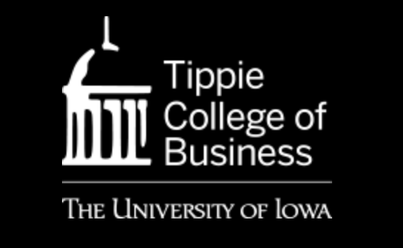Event Preview: Power Breakfast – The Talent War II

CHRIS CONETZKEY May 9, 2019 | 9:43 pm
5 min read time
1,188 wordsBusiness Record Insider, Education, Power Breakfast Series
Everybody is feeling the effects of the ongoing war for talent. With unemployment in Greater Des Moines barely above 2%, competition for top talent is overheating across all skill levels of jobs, organizations are searching for new sources of employees, companies and cities are voluntarily increasing minimum wages, and salaries are on the rise. But if you think the war for talent now is fierce, you won’t want to see the next five years, because some data shows it’s likely going to get more competitive. Last fall, national data expert James Chung, president of Reach Advisors, shared data showing that the growth of the young adult population (age 30-44), which has fueled Des Moines’ workforce, will slow and the growth rate of that key segment will drop by half by 2025. This will lead Des Moines into an increasing battle with top markets like Austin and Nashville for a smaller pool of top midcareer talent. Many efforts are underway to broaden our employment base and tackle this issue, but you have a business to run and a workforce to grow. On May 15, our panel of experts will take a look to the future, help you best understand how the employment market is going to change, and provide practical advice on how your business can compete to attract and retain a workforce with which your business can feel confident about going to battle in this tight labor market. To preview the event, we asked our panelists to respond to one question: What is the most important thing business leaders should know about the future of the employment market?
We Asked: “What is the most important thing business leaders should know about the future of the employment market?”
I often remind leadership of this point: “Engaged leaders get the top talent. Unengaged leaders get the rest.” It is rare that top talent will come to work for you just because of your company name. They want to work for a leader and company that will value them and provide opportunities for growth. Leaders that engage in the hiring process and share with the top candidates how they will be valued and what experience they will get at their company are the ones that are consistently able to hire top talent. The challenge of hiring top talent is not going away anytime soon. Leadership engagement can be a differentiator for your company.
– Matt McDonald, director of talent acquisition, Workiva
In a thriving economic environment combined with a historically low unemployment rate, we must ensure that all Greater Des Moines working-age adults are prepared for and able to connect to job opportunities that meet employer demand and allow individuals to thrive. Where we have demographic sectors with higher un- or under-employment, we must work collaboratively to provide them the skills and competencies required for jobs of today and the future and ensure hiring practices that welcome them into our places of work. The world of work for all is rapidly changing. Automation and AI will affect, in varying degrees, all jobs across every industry sector. We must embrace the power of transformative technology and invest equally in preparing our future talent pool and re-skilling our existing workers. It is also important that we continue to attract talent from across the country and world.
– Mary Bontrager, executive vice president of talent development, Greater Des Moines Partnership
People will still matter! Regardless of how much research we do or opinions we listen to about the impact of artificial intelligence, robotics and technology in general, no one truly knows what the employment market will look like in the years to come. The only constant is that change does and will continue to happen. As our world evolves with technology impacting nearly every industry, companies will still need individuals with excellent “soft skills.” While automation will likely change what hard skills and experience we must hire, those who are able to effectively communicate, who can get in the community to promote their business, who will follow the values and principles of their organization, and who can truly lead others will always be in high demand. While there is not much doubt that more advanced technology is coming, the companies who are willing to train and invest in all their people, especially those who can communicate and get others to believe in their product(s), will win the day. Soft skills are as important today as they have ever been, and I firmly believe that will be true well into tomorrow regardless of where technology takes us.
– David Leto, president, Palmer Group
Now more than ever, employers have to participate in developing the skilled workforce they need, whether that’s up-skilling current employees, providing tuition assistance or creating registered apprenticeship programs. With unemployment at historically low levels, it is imperative employers participate. The Future Ready Iowa Act provides a number of different ways to assist employers in doing this, including the Future Ready Iowa Last Dollar Scholarship and Grant programs and the Iowa Employer Innovation Fund. The Iowa Employer Innovation Fund is designed to encourage employers, community leaders and others to create public/private partnerships to develop their local talent pipeline. Local investment will be matched by state dollars to the extent available to provide things such as wrap-around support, such as funding for books, transportation or child care for Last-Dollar Scholarship recipients, or paying for short-term certificate programs that may not be eligible for the Last-Dollar Scholarship but are needed in the local area.
– Beth Townsend, director, Iowa Workforce Development
One important thing for employers to bear in mind is that technology is rapidly transforming many traditional workplace requirements. This can potentially allow employers to offer workers a different set of job characteristics. For instance, Workers put a lot of value on flexibility – flexible hours of work, or the ability to telecommute. Technology is making it increasingly easy to accommodate these preferences, so employers should aim for a broad perspective on how technology can affect the structure of their workplace.
– Julia Garlick, assistant professor of economics, University of Iowa
All success comes with and through people. Connect their passion to your mission and what gets accomplished will be amazing! It’s time for leaders to rethink how they approach talent acquisition, development and retention. Acquiring talent is the first step in building for organizational success. Developing and keeping your workforce fully engaged is what will drive sustainable, profitable growth. Culture and organizational identity is what drives the spirit and emotional connections of the workforce. This requires leaders to focus beyond compensation, benefits and employee programs. Today’s worker is looking for a job and role within an organization that gives their vocation meaning and purpose. They need to understand how their role connects to the organization’s mission, and it must align to their personal and professional passions. Culture speaks to how the organization treats the team and respects diversity of people, thoughts and ideas. In a rapidly changing business environment, alignment and engagement of the workforce is critical to achieving the desired outcomes.
– Tom Mahoney | chairman and CEO, ITA Group








